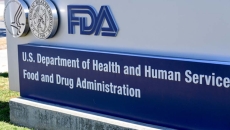Privacy & Security
A survey of chief information security officers across industries shows them experiencing serious strain as budgets remain limited while cyberattacks gain intensity. But there are some bright spots, such as improved relations with executive leadership.
Key findings from the 2022 healthcare cybersecurity study, including a decline in ransomware attacks and continuing workforce challenges, are discussed by Lee Kim, senior principal of cybersecurity and privacy at HIMSS.
In pursuit of more accurate and equitable AI models, the health system is broadening the distributed network to include de-identified datasets in Brazil, Israel and Canada.
The DoD's new cyber workforce strategy aims to address 30K unfilled cyber positions, and the agency is looking hard at "moving away from certifications," said Mark Gorak, cyber workforce policy and development integrator.
"The more efficient we are and the faster we turn around the equipment, the more equipment is available for the patient, which decreases length of stay and increases patient satisfaction," says its system director of clinical engineering.
Point32Health, the parent organization of Harvard Pilgrim Health Care and other health insurance plans, has taken HPHC systems offline, and providers are unable to confirm patient eligibility.
Healthcare organizations often face challenges with interoperability and cybersecurity regulations – but they can pivot to make those mandates part of their strategic road map, says Drew Ivan, chief strategy officer at Rhapsody.
A software patch is available to prevent cybersecurity threats to patient care, genomic data and provider networks from software vulnerabilities in Illumina's benchtop and production-scale genomic sequencing instruments.
While stakeholders agree the new interoperability and decision support rules could improve quality outcomes, some note that significant up-front commitment is needed for health IT developers while providers still document care with unstructured data.









